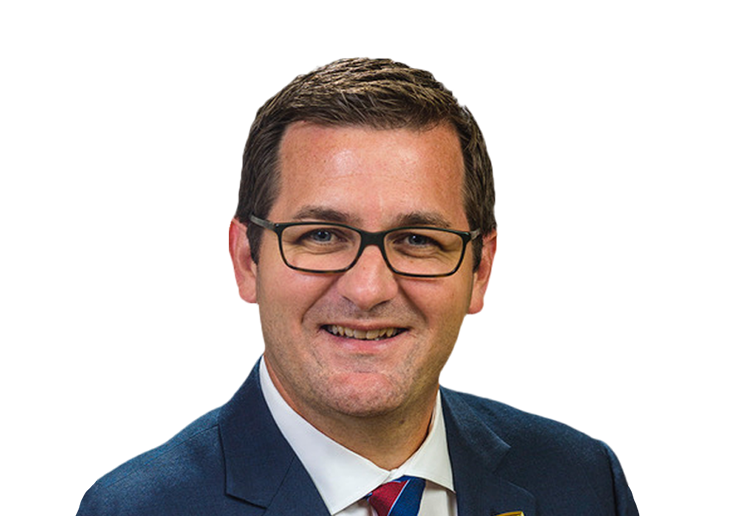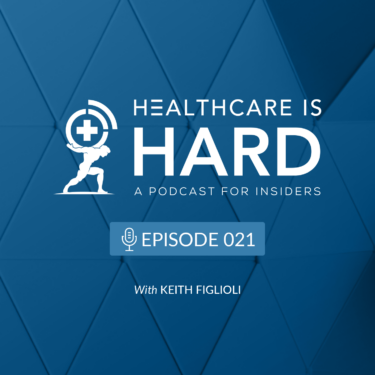
Michael Allen has unique expertise in healthcare finance. He’s been chief financial officer at four different health systems and is national chairman of the Healthcare Financial Management Association (HFMA) where he regularly interacts and shares knowledge with peers in the 56,000-member organization.
Michael calls HFMA his side hustle and is going on his second year of a one-year term since the organization froze its leadership to provide stability during the COVID-19 pandemic. His primary role is CFO at OSF Healthcare, a faith-based health system in Peoria, Illinois with 23,600 Mission Partners in 147 locations, including 14 hospitals.
Since the pandemic started, the Healthcare is Hard podcast has explored how health systems are dealing with it from multiple angles including from the CEO, CIO, regulatory, governance and supply chain perspective. In this episode, Keith Figlioli talks to Michael Allen to learn how finance leaders are supporting the healthcare industry and their organizations through this trying time.
Michael talks about how healthcare has historically not been very agile because realities like fixed costs, reliance on bricks and mortar and steady organic growth meant that it didn’t have to be. But he talks about the new need for agility, how OSF is adapting, and how some steps the organization took before the pandemic put it in a better position to respond. The topics Michael and Keith discuss include:
- Supporting quick decisions. Through its emergency operations center created to navigate the pandemic, Michael says OSF learned how slow the organization had previously been at making decisions. This wasn’t an issue before because it worked, but COVID forced a need for change. Instead of including everyone in every decision, Michael talks about how OSF learned to rely on small groups to make decisions, vet those decisions with the larger group, and then move forward quickly.
- Spending less time in the rear view. Michael is working to flip the traditional model of healthcare finance. Instead of looking backwards and planning based on previous experiences, Michael is directing his team to spend most of their time looking forward. For example, no one in healthcare knows what their future revenue stream will look like as the payer mix shifts and the average payment rate for services is likely to decline. This is why it’s critical for finance teams to spend more time forecasting and ensuring they’re nimble enough to respond to any situation.
- Eliminating the annual budget process. OSF entered its fiscal year starting October 2019 without a traditional budget. Michael and his team still updated their long-term financial plan and set financial targets on an annual basis, but spent less time on individual line items. Instead, they focused more on forecasting and dynamic planning, including measurement and processes for reacting to issues. This proved to be invaluable when the pandemic hit and as the healthcare industry faced rapid change, enabled OSF to quickly gather the information it needed, build forecasts, and move quickly.
- Creating an environment where innovation is inherent. Another area that bolstered OSF’s response to the pandemic is its focus on innovation – something Michael says has always been an integrated part of the organization versus a separate entity. In OSF’s venture arm for example, investments are never solely made for their financial benefits, but must also be doing something positive for the organization and be endorsed by clinical leaders. As the response to COVID-19 placed digital touchpoints first, this gave OSF a running head start in how it adapted.
Hear Michael and Keith dig into these topics and more in this episode of Healthcare is Hard: A Podcast for Insiders.
